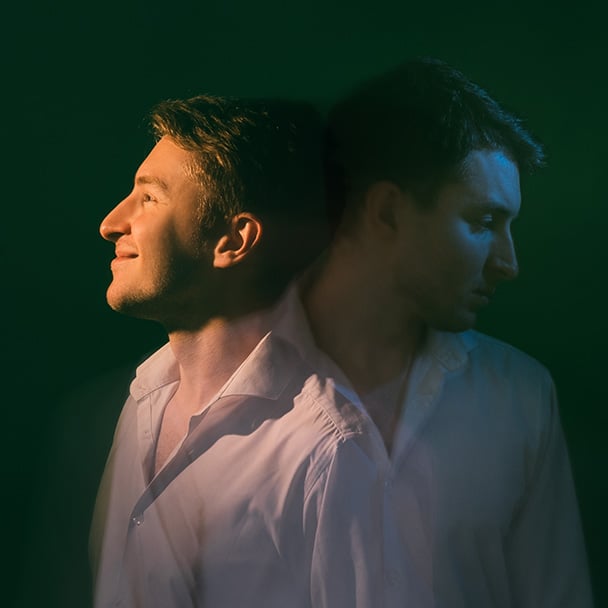My Loved One Needs Help with Opioid Addiction
If your loved one has developed an addiction to opioids and you’re scared of losing them to overdose, you’re not alone. The opioid crisis has forced millions of Americans to watch as their family member or friend has their life taken over by prescription painkillers, heroin, and fentanyl.
Dealing with a loved one's prescription opioid abuse can be even more complex and challenging because the lines get blurred between acceptable use and abuse. If you think your loved one is vulnerable to becoming the next casualty of the opioid addiction crisis, Recovery Unplugged is ready to help you pull them back from the brink and provide them with lifesaving treatment.
BE MINDFUL, BE SURE, BE PROACTIVE
Identifying opioid addiction in a loved one can be hard at first. The pathways to addiction for someone abusing heroin usually differ from someone who is abusing prescription painkillers that they first received from their physician for a legitimate pain-related illness.
As time goes on, however, opioid addiction becomes more obvious and more urgent. Though each person’s indicators will be unique, according to their abuse history and lifestyle, some of the more common signs of opioid addiction to watch out for include:
- Taking Prescriptions More Often and in Larger Amounts Than Intended
- Failing to Cut Down or Stop Despite a Strong Desire
- Excessive Preoccupation with Getting and Using Their Medication
- Severe Cravings and Uncontrollable Urges
- Inability to Manage Responsibilities at Work, Home, or School Due Drug Use
- Lying or Indignation When Confronted about Use
- Giving up Important Social, Recreational, or Work-Related Activities Because of Drug Use
- Using Opioids Again and Again, Even When it Puts Them in Danger
- Continuing to Use Even though It Leads to Exacerbates a Major Medical Condition
- Tolerance or Having to Take More of the Opioid to Get the Desired Effect
- The Development of Withdrawal Symptoms, Which Can Be Relieved by Taking More of the Drug
Some withdrawal symptoms can be obvious, but others can be more subtle—like irritability or nervousness. There may also be blatant physical indicators like marks on the skin, severe changes in weight, sunken eyes, and negligence of personal hygiene. If you know that your loved one has either used illicit opioids or are taking prescription painkillers, please be mindful of these tell-tale signs.



Don't be another statistic
Recovery Unplugged is here to help you or your loved one take their life back.
MY LOVED ONE IS ADDICTED TO OPIOIDS: NOW WHAT?
Having a clear, definitive plan of action to guide your loved one toward opioid addiction recovery is key. Although it’s an incredibly emotional process, you can’t let misplaced love or resentment derail your mission to get your loved one the help they need. Here are a few things to keep in mind:
IT’S NOT YOUR BURDEN TO SHOULDER ALONE
The first thing you need to realize is that you can’t get your loved one to quit opioids all by yourself. Enlist the help of your friends or other members of your family to mobilize and try and guide your loved one toward treatment. You can’t, nor should you be expected, take this on alone.
YOUR LOVED ONE IS STILL IN THERE, BUT...
Opioid addiction hijacks the brain chemistry and turns even the most honest, ethical people toward a life of lying, manipulation and, if necessary, violence. Addiction makes it impossible to focus on anything other than feeding it, which is why you shouldn’t be surprised when the person you “thought you knew” engages in extreme behavior.
THEY MAY NOT GO QUIETLY
The reason why you’re agonizing over opioid addiction treatment for your loved one is that they haven’t gotten it for themselves, nor do they have the inclination to. Right now, in their mind, going to treatment minds giving up opioids, and that’s just not something that most opioid addicts can see themselves doing. Be prepared for resistance and even an altercation when confronting them with treatment ultimatums.
STAND YOUR GROUND
No matter how much they yell, scream, get in your face or rationalize, just keep in mind that you’re there for a reason and that you’re trying to do what’s best for them. Don’t let someone whose brain has been hijacked by addiction make you second-guess yourself or your motivations for getting your loved one help. You’re doing the right thing.
WE’RE READY WHEN YOU ARE
Whether you need help organizing an intervention or just quick and expedited access to treatment, Recovery Unplugged is ready to help. Our admissions representatives are standing by 24-7 to help you get your loved one the care they need. Contact us today at 1 (855) 790-8049 for a full insurance verification. You don’t have to watch your loved one lose the battle with your opioid addiction; we’re here to help them get their lives back and restore hope to your family.